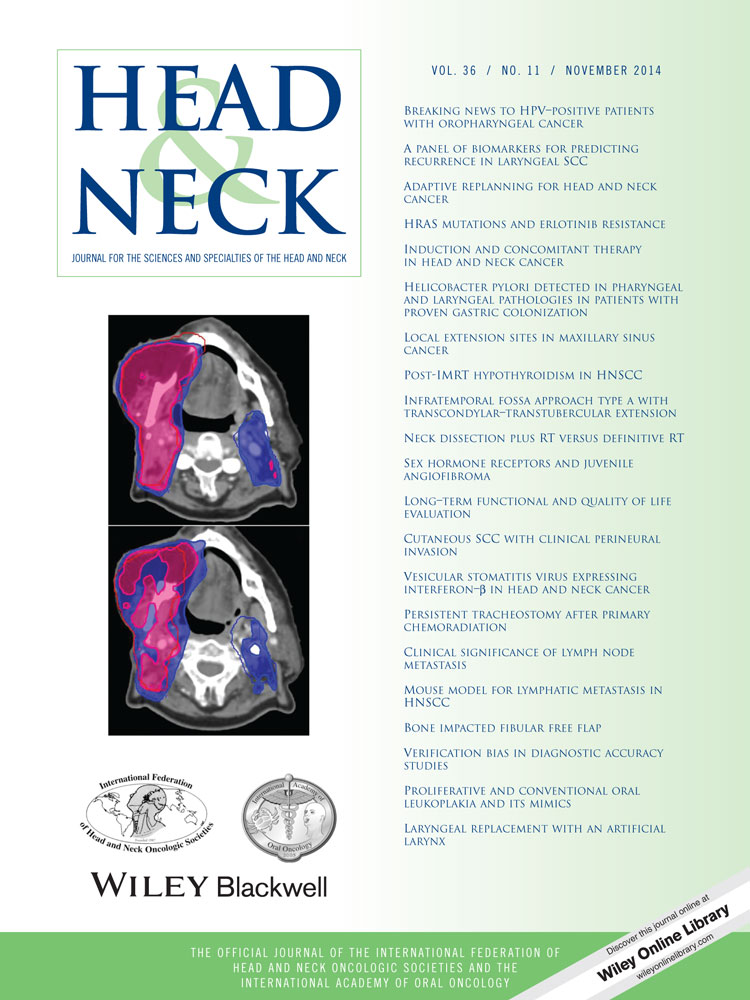Clinical significance of intraparotid lymph node metastasis in primary parotid cancer
Abstract
Background
The clinical utility of intraparotid lymph node metastasis in primary parotid cancer is unknown, and this study was undertaken to address this gap in knowledge.
Methods
A medical chart review was performed on 86 patients who underwent parotidectomy with neck dissection (39 cN+ and 47 cN0). The disease-specific mortality and locoregional recurrence (LRR) were correlated with intraparotid lymph node metastasis status.
Results
Using intraparotid lymph node metastasis status to predict cervical nodal metastasis resulted in a sensitivity and specificity of 70% and 90.6%, respectively (positive predictive value [PPV] of 87.3%). Patients with positive intraparotid lymph node metastasis had a worse 3-year disease-specific mortality compared with patients with negative intraparotid lymph node metastasis (p = .0037). Patients with cN0 neck but positive intraparotid lymph node metastasis were more likely to develop locoregional recurrence than patients without intraparotid lymph node metastasis (p = .08).
Conclusion
In patients with cN0 neck but positive intraparotid lymph node metastasis, intraparotid lymph node metastasis presence was strongly associated with a worse disease-specific survival and placed them at a higher risk of locoregional recurrence. © 2013 Wiley Periodicals, Inc. Head Neck 36: 1634–1637, 2014




